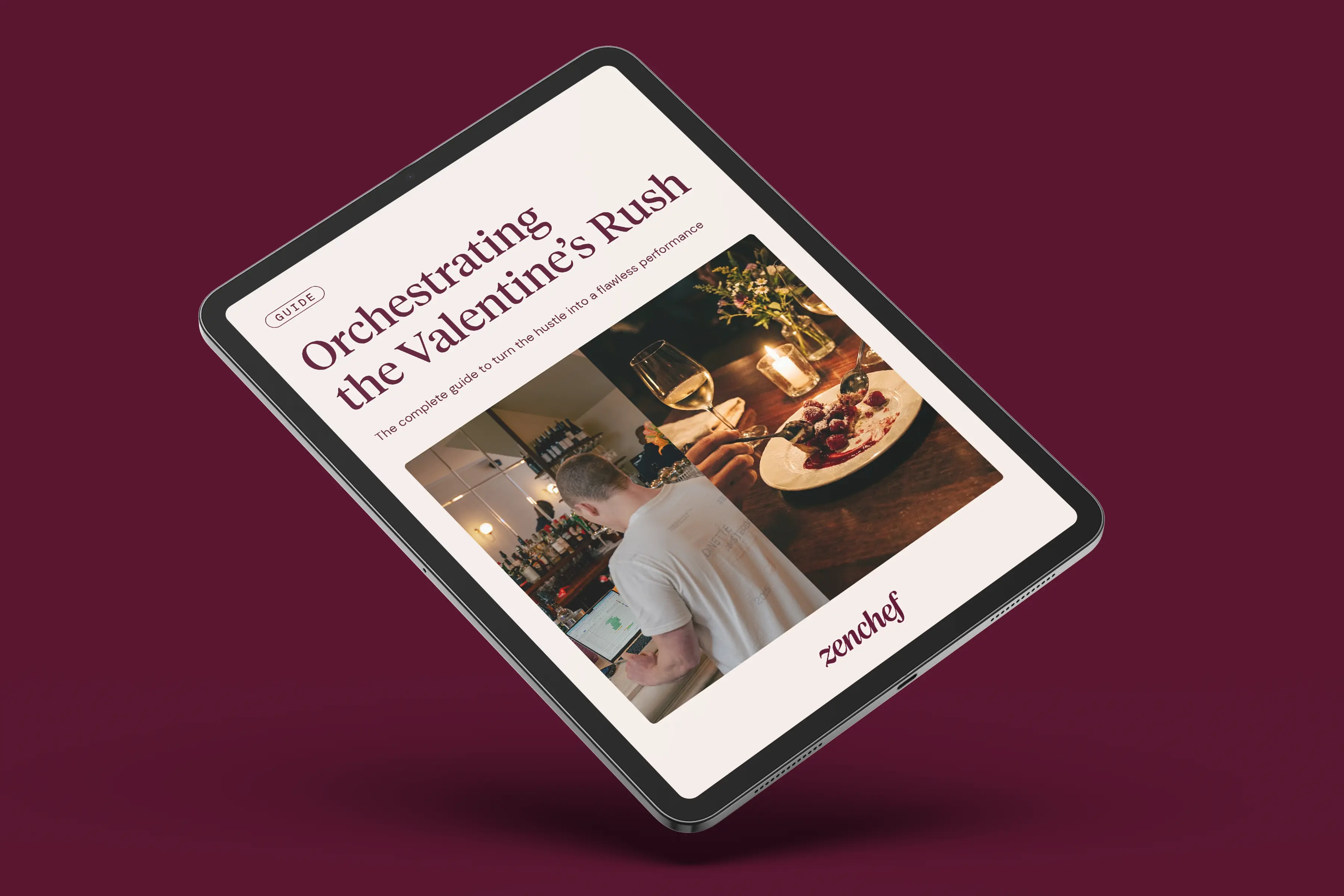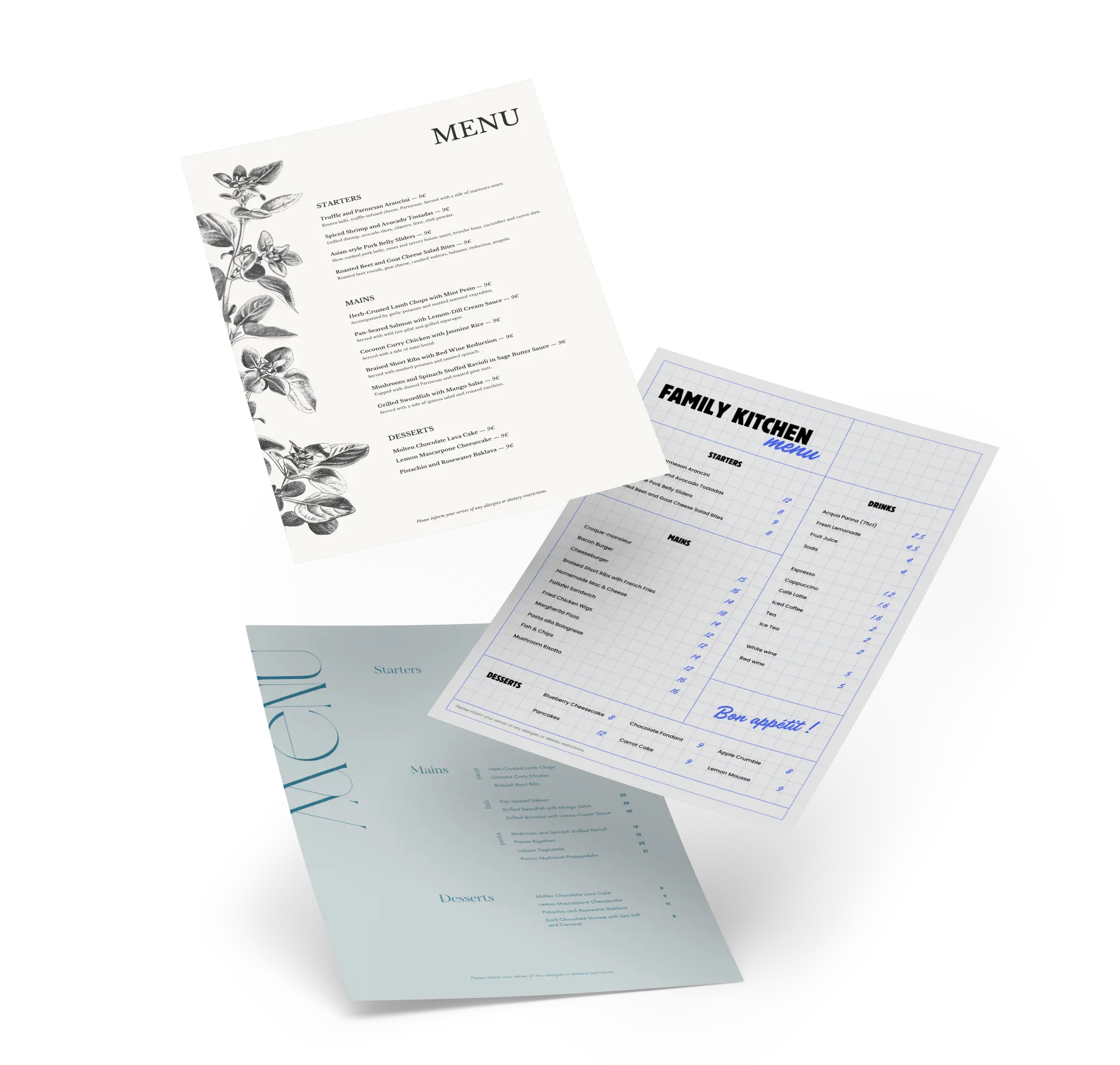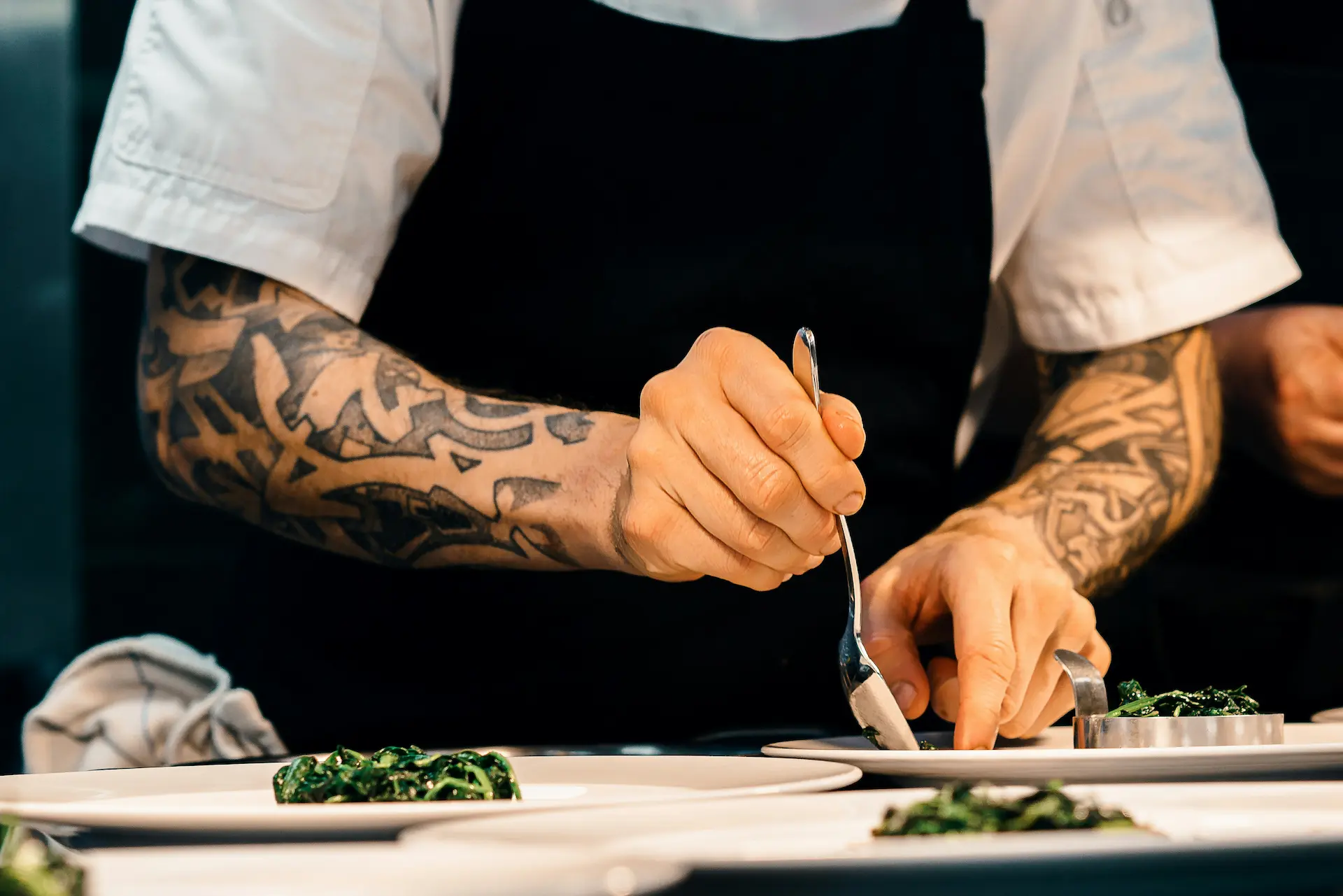
The Challenges of Food Waste in Foodservice
Food waste is a real scourge for restaurateurs. In France, 15% of the food wasted each year, or more than one million tons, comes from restaurants. (source: Zenchef) On average, for each meal served, a customer wastes about 211 grams of food (Source: Zenchef).
A reality that Freddy Zerbib, manager of the El Tio restaurant in Orléans, knows well: "There is too much waste in catering... Customers have eyes bigger than their stomachs, and if we added up everything they leave behind, we could recover large quantities of food. It's sometimes sad to see!"
In addition to financial losses, this waste has a considerable environmental impact. Indeed, the production, transport and processing of food emit large quantities of greenhouse gases.
According to the FAO, livestock farming is responsible for 14.5% of global greenhouse gas emissions (Source: FAO), and each year, about a third of the food produced in the world is wasted, or about 1.3 billion tons (Source: FAO).
Anti-Waste Solutions & Examples for Restaurants
The Anti-Waste Book by 27 Renowned Chefs
Under the initiative of Umih, 27 great chefs have unveiled their anti-waste recipes in the book "Chefs are committed, their anti-waste recipes". Thierry Marx, who signs the preface, emphasizes: "We must restore all its meaning to the art of eating." This book is full of tips to prevent still usable ingredients from ending up in the trash. Chefs like Alain Ducasse, Anne-Sophie Pic and Pierre Gagnaire share creative recipes that make the most of every part of an ingredient. For example, vegetable peelings can be transformed into broths, crisps or purees. In addition to reducing waste, these tips enrich menus while offering customers greater diversity. Sold at €9.90, this book is a valuable source of inspiration for kitchens.
The Freegan Pony, a restaurant that makes use of unsold goods from the Rungis market
Freeganism is an alternative lifestyle, born in the United States, which denounces food waste and the pollution generated by waste.
Founded by Aladdin Charni, the Freegan Pony in Paris offers an innovative approach to using unsold food. This non-profit restaurant prepares dishes from unsold market produce and practices a "pay what you can" policy. "We offer dishes made exclusively with food that was destined to be thrown away," explains Aladdin. The goal of the Freegan Pony is not to make a profit, but to raise consumer awareness of food waste. Aladdin adds: "Rather than throwing away fruits and vegetables that don't conform to sales standards, some market gardeners prefer to donate them. They are perfectly edible" (Source: Zenchef).
By recovering this unsold produce, the Freegan Pony team manages to create tasty meals, demonstrating that it is possible to transform food destined to be thrown away into gourmet dishes. In addition, the surplus is used to make preserves, chutneys and jams, ensuring full use of the recovered products.
Nothing is lost, everything is cooked
On November 4th, the 31st AgroParisTech Grandes Ecoles Cooking Competition will take place with the theme "Nothing is lost, everything is cooked" at the Ferrandi School. The objective of the event: to have students from the major French schools compete in a high-level culinary event. The 12 teams of 3 students, accompanied by Michelin-starred chefs and MOFs (Meilleurs Ouvriers de France), will have to create a "responsible dish" within a set time to seduce the jury chaired by Thierry Charrier, head chef of the Ministry of Foreign Affairs, and the honorary president, Marie Sauce Bourreau, president of the Toques Françaises.
Le Bichat: A Sustainable and Accessible Canteen
Augustin Legrand, after his commitment to the homeless through the association Les Enfants de Don Quichotte, founded Le Bichat, a neighborhood canteen that combines accessibility, sustainability and quality. Open every day, it offers organic, homemade dishes for an average price of 12 euros. The supply of fresh and local products is done with market gardeners in the neighborhood, organic wholesalers in Rungis, and an organic farm in Picardy, guaranteeing a seasonal and local menu.
Le Bichat reduces food waste by rigorously managing its stocks and renewing its offer daily. "Our dishes are generous and all the ingredients are organic, from vegetables to meats, including the wine. By working with local producers and using short circuits, we minimize our ecological impact," emphasizes Augustin Legrand. Unsold food from the restaurant is also redistributed to charities, thus integrating an essential social dimension into Le Bichat's approach.
A "Committed Anti-Waste Restaurant" Label
Framheim has launched the "Committed Anti-Waste Restaurant" label, which rewards establishments that effectively reduce food waste. Dominique Bréchon, co-founder of Framheim, states: "The best waste is the one we don't produce." (Source: Framheim).
The label's methodology includes a detailed assessment of each restaurant's current waste management, followed by recommendations for tailored solutions, such as optimizing orders to minimize surplus. Candidate restaurants must also adhere to twelve key criteria, which encompass aspects such as staff training in anti-waste best practices and the implementation of specific procedures for managing unsold food.
By obtaining this label, restaurants not only demonstrate their commitment to the environment but also benefit from concrete advantages. By optimizing their resource management, they reduce costs and improve profitability. Moreover, the label allows them to strengthen their brand image with a clientele that is increasingly sensitive to ecological issues.
Simone Lemon: Slow Food & Payment by Weight
Emma and Lucy, founders of Harvest Table in London, explain: “In the UK, around 30% of fruits and vegetables are wasted simply because they don’t meet aesthetic standards. A slightly misshapen carrot? It often gets rejected because no one wants to buy it!” (Source: Zenchef). By sourcing these “imperfect” but equally tasty and nutritious products, Harvest Table offers a diverse and high-quality menu. Their pay-by-weight system encourages customer responsibility, helping to reduce overconsumption. Any unsold food is redistributed to local charities, reinforcing the initiative’s community-focused mission.
The Guide to Good Practices for Bio-waste Management in Foodservice
Geco Food Service, in collaboration with Ademe, has published a free guide to good practices for bio-waste management. Since January 2016, restaurants producing more than 10 tons of biodegradable waste per year must sort it for recycling. By 2025, this obligation will be extended to all establishments. This guide summarizes the regulations and proposes solutions to recover this bio-waste through composting or methanization (Source: Ademe), practices that can significantly reduce the environmental impact of restaurants.
Etiquettable, the app for responsible cooking
Do you know the ecological footprint of your dishes? No. It is to overcome this lack of information that Eco2 Initiative created Etiquettable. The project consists of a mobile application on sustainable cooking for the general public, but also an eco-calculator for restaurateurs. In the free version, they can enter the ingredients, their weight, the origin of their products, the storage methods and then discover the environmental score of their recipes, based in particular on scientific data from Ademe (the French Environment and Energy Management Agency).
Committed restaurateurs like François Pasteau, user of the eco-calculator
"The restaurateur can know their carbon footprint, and in the paid version, all the nutritional information, calories, sugar level, allergens and proteins contained in their dish. They can save, modify and print their recipes on their space," explains Shafik Asal, co-founder of Etiquettable. This information is essential for restaurants that want to focus their communication on their eco-responsibility but also raise awareness among their customers. François Pasteau, chef and manager of L'Épi Dupin in Paris and Zenchef ambassador, used this eco-calculator to present the recipes in his book "Eating, Cooking Eco-Responsibly", as did the Hotel-restaurant Les Orangeries, in its kitchens in Lussac-Les-Châteaux.
Geolocate restaurants that have an environmentally friendly approach
On the consumer application side, Etiquettable synchronizes the databases of its partners (Yes We Green, Too Good To Go, Bon Pour Le Climat, VegoResto, etc.) which reference restaurateurs adopting an organic, locavore commitment approach, with a vegetarian or climate-friendly offer, and then allow end consumers to geolocate them. "The app is collaborative: users can also contact us to suggest a restaurant, as can restaurateurs who feel they should also be part of it," adds Marianne Petit, co-founder of the application.
Zenchef, to better manage stocks in your restaurant
Knowing how many people are expected for lunch and dinner service in order to place the right order, avoid no-shows thanks to bank card details and therefore the loss of fresh produce purchased but not ordered, know the appetite of your customers noted in your customer file and properly portion their plates... So many benefits for restaurateurs who use the reservation system developed by Zenchef. On a daily basis, thanks to a digital reservation book, the entrepreneur can better adjust their stocks and avoid wasting food that they will not use due to lack of orders.
Ecological and CSR Initiatives in Foodservice
Distributing Food Waste
Apps like Too Good To Go and Fresh Me Up offer restaurants the opportunity to sell their unsold food at reduced prices, thus avoiding throwing it away. Freddy Zerbib, a restaurateur in Capbreton, explains: "I prefer that my customers leave with what they haven't finished eating rather than having to throw away their leftovers."
Too Good To Go is a community of restaurateurs and consumers offering meals at reduced prices, made up of dishes that can no longer be stored or served again. Customers can order these meals via the app and pick them up to take away. A study conducted by Too Good To Go shows that the app saves several million meals from the trash each year, thus contributing to a significant reduction in food waste.
In the same spirit, some restaurateurs choose to share their unsold food with family, employees, or even homeless individuals in their community. Freddy Zerbib, owner of El Tio in London, emphasizes: “As restaurateurs, we have a duty to help those in need. We have the means to make a difference!”
Charging for Leftovers
Some restaurants have chosen to charge customers for leftover food by weight or at a fixed price (Capital).
Combining Reduced Menus and Limited Covers
Among the strategies to better manage stocks and reduce waste, some establishments opt for reduced menus, with a limited choice of dishes. This allows for better inventory control, offering fresh, quality meals, while reducing waste. For example, rather than offering a wide selection of dishes, some restaurants focus on two starters, two main courses and two desserts that vary each day. This format simplifies inventory management and guarantees fresh products, while significantly reducing food loss.
Some restaurateurs combine this approach with a limited number of covers, thus optimizing the management of ingredients and reducing unsold items. Freddy Zerbib, chef of the restaurant El Tio, notes: "In May, we found that 20% of our customers leave with the end of their meal" (Source: Zenchef). By adopting smaller menus and limiting covers, restaurateurs can offer quality dishes while reducing losses.
Favoring Short Circuits
By favoring short circuits, i.e. sourcing directly from local producers, restaurateurs eliminate intermediaries. This practice has a twofold advantage: it guarantees fresher products, as the time between harvest and plate is reduced, and it contributes to the reduction of waste related to transport and packaging.
A study by ADEME reveals that short circuits reduce CO2 emissions by an average of 50% compared to long circuits (Source: ADEME). This involves direct partnerships with local producers, ensuring optimal quality while supporting the local economy.
Laurence Lava, owner of the restaurant 6 Capbreton, explains: "By buying local, we support the local economy while limiting CO2 emissions linked to the transport of food." A concrete example: a restaurateur can buy their eggs directly from a local farm, thus reducing intermediaries and guaranteeing fresher products. By integrating the short circuit into their supply chain, restaurants contribute to a more sustainable gastronomy while reducing their ecological footprint.
Zenchef helps you to highlight your short circuits and the origin of your food thanks to its digital menu, you can show where your products come from.
If you would like to know more, book your demo here.
Offer Organic Wines on Your Wine Lists
After the integration of organic products in dishes, wines are following this trend. In France, 50% of restaurants offer organic wine with an average of six references on their menu, according to Florent Guhl, director of Agence Bio (Source: Agence Bio).
Moving to an eco-responsible restaurant requires commitment, but every little action counts. By collaborating with your teams and communicating your progress, you can inspire your customers and contribute to a more sustainable future for the planet.
The Doggy Bag: An Essential Anti-Waste Tool
Unlike in the United States or England, in France, the practice of doggy bags is still developing timidly, even if it is gaining ground.
Mandatory Doggy Bags in Restaurants
On March 21, 2021, the Sustainable Development Commission of the French National Assembly adopted an amendment aimed at obliging all restaurants to provide doggy bags free of charge.
Laurence Lava, owner of the restaurant 6 Capbreton, encourages the use of doggy bags: "I prefer that my customers take home what they haven't finished rather than throwing away their leftovers." This simple and effective practice contributes to the reduction of food waste by allowing customers to enjoy their meals later, at home.
Freddy Zerbib, chef of the restaurant El Tio, adds: "Doggy bags allow us to not lower the price of dishes while justifying the quality and quantity of our plates" (Source: Zenchef)
A practice that is still taboo in France
Despite a growing international trend, the use of doggy bags still faces cultural barriers and remains taboo. Leftovers are considered waste and asking for a doggy bag is considered "cheap".
According to a YouGov study, 24% of people are embarrassed to ask to take their leftovers home (Source: YouGov). In addition, the term "doggy bag" itself, with the association with "dog", is perceived as inelegant and devaluing. However, this perception is evolving thanks to awareness and positive communication, as the same study shows that 90% of people are aware that this practice is a good way to fight against waste.
Restaurateurs have even considered changing the name and renaming the doggy bag to "gourmet bag"®.
5 advantages of doggy bags
To encourage the use of doggy bags, here are some convincing arguments:
- The doggy bag reduces food waste by halving waste in restaurants
- It allows customers to extend their enjoyment by taking their leftovers home.
- It encourages the sharing of leftovers with loved ones or even people in need.
- It helps to save money by making the most of the expense incurred at the restaurant.
- It saves time, as leftovers can be eaten the next day without the need for additional cooking.
Setting up clear and visible signage, as well as regular communication about the possibility of taking leftovers at the end of the meal, can help overcome customer reluctance and encourage the use of doggy bags.
Laurence Lava adds: "The implementation of gourmet bags® is not a question of cost as long as the customer is satisfied and we avoid waste." By normalizing this practice, restaurateurs can not only reduce food waste, but also meet consumer expectations.
How can Eco-Responsibility Strengthen Your Team?
Adopting eco-responsible practices reinforces employee loyalty and fidelity. According to a study by Youmatter, 51% of employees say they would not work for a company without a strong social or environmental commitment. This creates a sense of pride and motivates teams.
The Feeling of Pride
Being part of a company committed to the environment is a source of motivation and cohesion. Employees are more invested when they know their work has a positive impact.
The Clientele
An eco-responsible business attracts customers who share the same values. This creates a positive work atmosphere where serving environmentally conscious customers reinforces job satisfaction and a sense of accomplishment.
Dan Cebula, founder of DEPUR Consulting, observes: "Customers want to eat healthy, enjoy themselves, while supporting sustainable agriculture. They also want to preserve their health while respecting farmers."
Learning
The implementation of eco-responsible practices allows employees to acquire new skills and adopt innovative working methods. Learning to compost or develop anti-waste recipes stimulates creativity and enriches the professional development of employees, allowing them to continuously train and evolve in their careers.
The Objectives
Setting ecological objectives, such as waste reduction or obtaining an environmental label, encourages team cohesion and motivation. Aiming for certifications such as the Ecotable label, for example, can strengthen employee commitment.
François Pasteau, from the restaurant L'Épi Dupin, explains: "By using every part of a carrot, even the tops, I please my customers, I save money, and I optimize my material costs" (Source: Zenchef).
Towards an Eco-Responsible and Sustainable Restaurant in 9 CSR Actions
The transition to a sustainable restaurant is done in stages. Here are nine actions to achieve this:
- Measure the environmental impact: Use tools like those of Écotable to assess your restaurant's footprint and prioritize your actions (Source: Impact).
- Set clear objectives: Prioritize concrete actions (waste reduction, local sourcing) and set deadlines to measure your progress.
- Involve your team: Assign managers for each ecological objective. The active participation of employees generates collective motivation.
- Get inspired by other committed establishments: Exchange with other restaurateurs to gather practical ideas and feedback.
- Make your menu greener: Gradually introduce vegetarian dishes to reduce the environmental impact, while creating tasty and seasonal recipes (Source: FAO).
- Work with responsible suppliers: Favor short circuits, organic farming and ban products with a high environmental impact (Source: Écotable).
- Use eco-responsible materials: Choose natural cleaning products and reusable materials to improve the sustainability of your establishment (Source: ADEME).
- Continuously train your team: Encourage your employees to train on good ecological practices through podcasts or specialized newsletters (Source: Écotable).
- Analyze your waste: Regularly inspect your bins to identify areas for improvement in waste management, and set up a composting system.
How to communicate your ecological commitment in the restaurant industry?
To effectively promote your ecological values and commitments, it is essential to:
- Write a visible charter or manifesto: Create a clear and accessible document that explains your eco-responsible actions. Publish it on your website and social networks so that your customers and teams can easily consult it.
- Raise awareness and train your employees: It is crucial that your team understands the importance of your eco-responsible practices. Organize regular training sessions to inform them and integrate this approach into their daily professional lives.
- Communicate on the progress made: Keep your employees informed during team meetings and use your communication channels to share your progress with your customers. This helps to promote your efforts and maintain collective motivation. Dan Cebula, founder of DEPUR Consulting, states: "Customers want to eat healthy, enjoy themselves, while acting in favor of sustainable agriculture. Consumers seek to maintain their health, especially by monitoring their diet. They do not want to feel responsible for the exploitation of farmers."
Examples of Innovative Ecological Initiatives in the Restaurant Industry
A Pint of Butts, Please!
On the beach of Castelldefels, Spain, the Tibu-Ron bar launched an original initiative: exchanging a cup full of cigarette butts for a cold beer. This gesture encourages tourists to clean the beach while raising awareness of the pollution caused by cigarette butts. This initiative has inspired other establishments to follow suit, creating a snowball effect for cleaner beaches (Source: The Guardian).
The Best "Bee-zza" in England
In partnership with the Bumble Bee Conservation Trust, the Papa John's franchise in the United Kingdom has designed a miniature pizza for bees. This creation, made with dough, tomato sauce, pollen and wildflowers, aims to raise awareness of the disappearance of bees and raise funds for their protection. This initiative highlights the importance of pollinators in our ecosystem (Source: BBC).
The Greenhouse Café in London
The Greenhouse Café, located in a renovated industrial space in London, embodies urban sustainability. This eco-conscious café-restaurant embraces the 'Four Rs': Rethink, Reuse, Repair, and Recycle. With its rooftop garden and regular workshops on sustainable practices, The Greenhouse Café educates visitors on eco-friendly living while serving locally sourced, seasonal dishes. The venue’s commitment to sustainability extends to composting food waste and using reclaimed materials for its décor, offering an inspiring model of green living in an urban setting (Source: Zenchef).
To discover how Zenchef can help your restaurant, try our free solution or request a demo.


















.webp)







